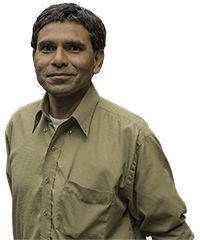Opinion
Mishra’s Mishrash: Men in Denmark have good reasons to fear false accusations
Mrutyuanjai Mishra
This article is more than 4 years old.

During an absence enforced by false accusations, your child will most likely forget what you look like (photo: Gugatchitchinadze)
In 1999 the Danish television channel DR2 aired a documentary entitled ‘Farvel Far’ (goodbye Daddy). It was the first of its kind to shed some light on how systematic false accusations can destroy the possibility of a father keeping in contact with his children.
Lying lawyers and story-telling social workers
According to the police, in such cases there is often no evidence nor any proof of any misconduct, but the consequences are obvious: the father loses contact with the child not only temporarily but permanently, as it puts an end to his hopes of playing the role of a responsible parent forever.
In 2015, DR2 broadcast a similar program to its 1999 documentary, ‘Fædre under mistanke’ (fathers under suspicion), in which it was once again emphasised that a minority of family lawyers responsible for settling disputes amicably, along with a splattering of social workers and municipal officials, were indirectly fuelling conflict within families, and sometimes even encouraging women to start smear campaigns full of undocumented, false accusations against their ex-husbands.
Some lawyers later complained to the Pressenævnet press council, but the complaints were found baseless, with the council concluding that DR2 had lived up to the ethics of free press and its moral obligation to inform the general public about what happens in society at large.
As many as 100,000 cases
In the same year, Foreningen Far, a support organisation for fathers in Denmark, claimed that more than 100,000 historic cases have drawn the wrong conclusion based on undocumented accusations of bad or criminal behaviour, which are never proved without doubt.
Men without a good education or respected social standing are particularly vulnerable. And in most cases they can’t afford a good lawyer.
The mandatory six-month term
Fast-forward to 2021 and the situation has not improved for men and fathers in Denmark. There are more women occupying top political, economic and professional jobs than ever before, but men are no closer to equality when it comes to having rights on the family front.
In February 2021, another documentary was broadcast, this time entitled ‘De falske beskyldninger’ (false accusations). Journalist Razal el-Nakieb interviewed lawyers, scholars, and fathers who had lost contact with their children due to the accusations they faced.
El-Nakieb’s documentary also drew attention to how accusations will result in fathers losing contact for at least six months – the minimum time it takes to write the necessary report. No contact is allowed between father and child in the meantime.
His right to a fair trial?
The past year has generated other surprises in the field of false and unproven accusations thanks to the return of the #MeToo movement. And it would appear that men at the top of the social ladder are the most vulnerable this time around.
The most conspicuous case has been Jes Dorph Petersen, the face of Danish news these three past decades. TV2 fired him from his job as a TV host based on accusations alone. The alleged incidents are supposed to have occurred 20 years ago.
Well, it seems that Danish people, both men and women, have had enough of unproven accusations. A Facebook group created in support of Petersen has attracted more than 44,000 members.
Signatures for a proposal to be brought before Parliament formulated by members of the group argue that citizens in a democratic society are entitled to a fair trial in such cases. People should not be judged on rumours alone.
The weaker sex
Petersen’s case has had huge implications, as he was a well-known figure on prime-time TV. He is not backing down, nor is he ready to accept considerable remuneration for staying silent.
With undocumented allegations increasingly being levelled at TV stars, politicians and other well-known people, questions are now being asked. Have men become the weaker sex in the Danish society?
Now, fortunately, women who have a brother, husband, son, or male friend have started questioning if they should sit back and allow unproven, potentially false accusations to destroy the lives of their loved ones.
The fight for this social justice has just begun.

About
Mrutyuanjai Mishra
As a regular contributor to the Times of India, the country’s largest newspaper, Mishra is often sought-after by Danish media and academia to provide expertise on Asian-related matters, human rights issues and democratisation. He has spent half his life in India and the other half in Denmark and Sweden.










































